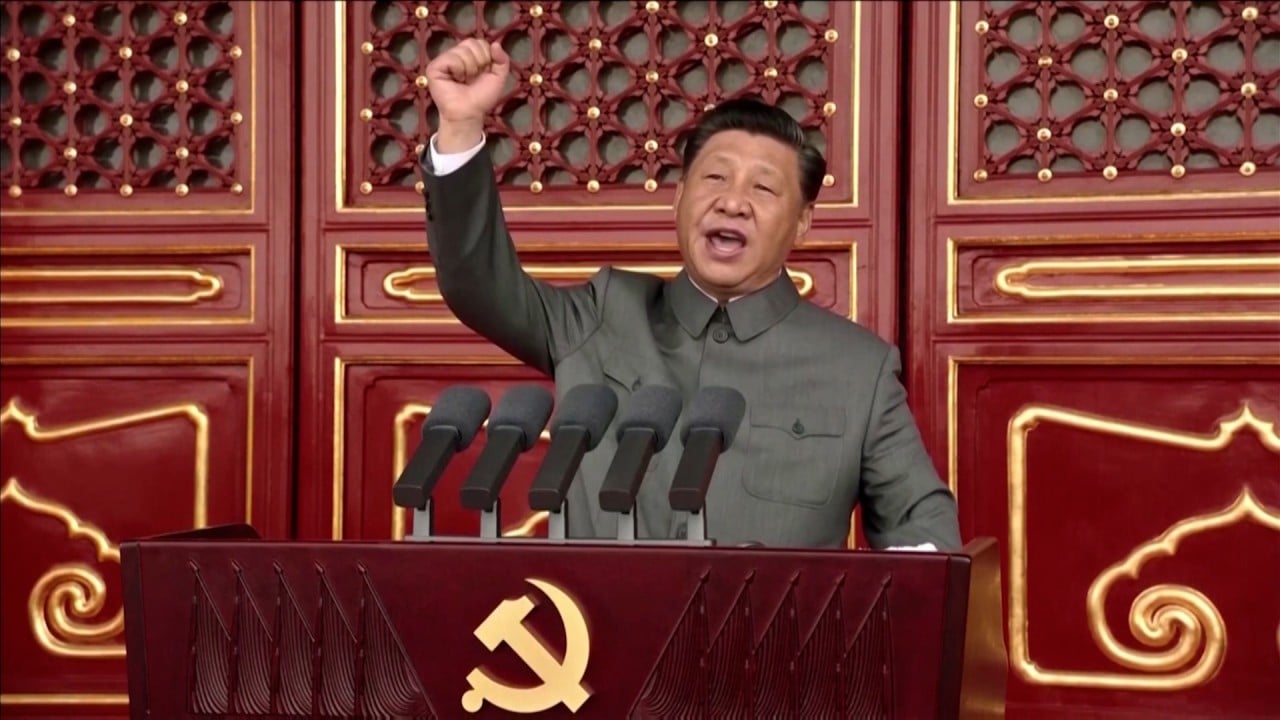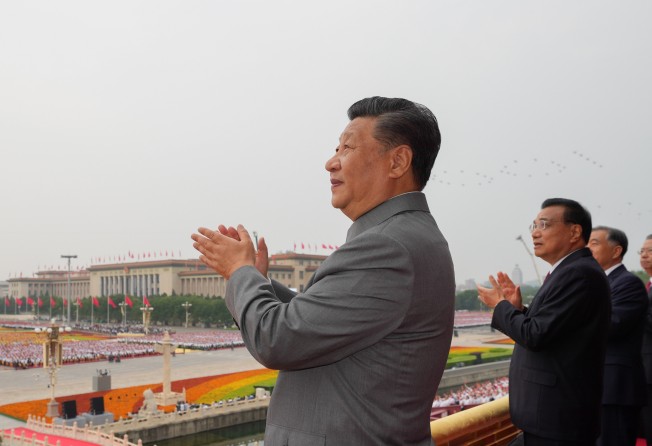
04:14
Xi Jinping leads celebrations marking centenary of China’s ruling Communist Party

The centenary of the Chinese Communist Party on July 1 was billed as a major national event for China and a personal milestone for President Xi Jinping. His speech deified the Communist Party for its contribution to enabling China to acquire comprehensive national power.
The address, which lasted over an hour, was leavened with nationalism and an exhortation to the Chinese people to remain invested in the ideology of the Communist Party and its current leadership and work towards reclaiming China’s lost glory.
The primary audience for Xi was clearly the 1.4 billion-strong Chinese population and the message had one underlying theme – the centrality of the Communist Party.
Xi framed the party-nation linkage with palpable certitude: “China’s success hinges on the party. The more than 180-year-long modern history of the Chinese nation, the 100-year-long history of the party, and the more than 70-year-long history of the People’s Republic of China all provide ample evidence that without the Communist Party of China, there would be no new China and no national rejuvenation.”
China’s growth trajectory in the last eight decades has been extraordinary. From a country that was racked by poverty and a protracted civil war even as World War II was raging, it emerged in 1949 with Mao Zedong at the helm and a communist ideology derived from the Marxist-Leninist template forged in Russia.
In the decades that followed, the transition from Mao to Deng Xiaoping enabled a carefully calibrated consolidation of the party and nation despite many internal convulsions that included the excesses of the Cultural Revolution, large-scale famines and the 1989 Tiananmen Square uprising. Highlighting these episodes was of course inappropriate for the celebratory nature of the centenary, and their elision is understandable.
Thus, Xi was adulatory in outlining the evolution of the People’s Republic of China. He noted that the Chinese nation had “achieved the tremendous transformation from standing up and growing prosperous to becoming strong, and that China’s national rejuvenation has become a historical inevitability”.
While the image of China alluded to in the Xi address was normative and benign – that of a peace-loving country which “champions cooperation over confrontation” – the warning to adversaries was unambiguous and harsh in choice of word and phrase. Xi cautioned: “We will never allow any foreign force to bully, oppress, or subjugate us. Anyone who would attempt to do so will find themselves on a collision course with a great wall of steel forged by over 1.4 billion Chinese people.”
The official English translation of Xi’s speech left out his graphic reference to “heads cracked and bleeding”. Be that as it may, the reference to the United States and its allies is unmistakable, even if not stated explicitly.
Taiwan remains central to the image of a unified China (after absorbing Hong Kong and Macau), and Xi’s reference to the island was resolute: “Resolving the Taiwan question and realising China’s complete reunification is a historic mission and an unshakeable commitment of the Communist Party of China.”
How this issue will unspool over the next few years will determine Xi’s legacy and China’s profile in the global comity.
India and contemporary Russia find no mention in the Xi address. However, the triangular relationship among the three Eurasian powers will shape Beijing’s options in managing what it sees as the hegemony of the US and like-minded nations in the run-up to the 2049 centenary of the People’s Republic.
The recent Biden-Putin summit has led to a lowering of the US-Russia discord; the possibility of a US-led coalition that will seek to reduce dependency on and engagement with China can be an impediment for Beijing.
For India, the altercation with the People’s Liberation Army in the Ladakh sector of the contested Line of Actual Control in June 2020, where both sides lost lives, is a stark reminder of the fragility of the current uneasy stalemate. Almost 100,000 troops from both sides are in proximity, and the military build-up is on a steady uptick.
How Moscow will orient itself in the tussle between the two Asian giants will be critical for both Beijing and New Delhi. In this context, Russia’s new security policy released on June 3 is instructive for its nuanced approach. While the new policy seeks to develop a comprehensive partnership with China, it also aims to further expand strategic cooperation with India.
Concurrently, the new policy makes an elliptical reference to the prevailing Sino-Indian tension in Ladakh by dwelling on the “risks associated with armed conflicts escalating into local and regional wars involving the world’s nuclear powers”.
Whether China can begin “a new journey towards realising the second centenary goal” in defiance of the larger global orientation and sanctity of norms will be dependent on the policy choices made by Xi. The period from now to 2049 can be more animated for China and its principal interlocutors than envisioned, as regional and global challenges coalesce and collapse in the contemporary geopolitical churn. Climate change and Covid-19 are just the tip of the iceberg.
Commodore C. Uday Bhaskar is director of the Society for Policy Studies (SPS), an independent think tank based in New Delhi